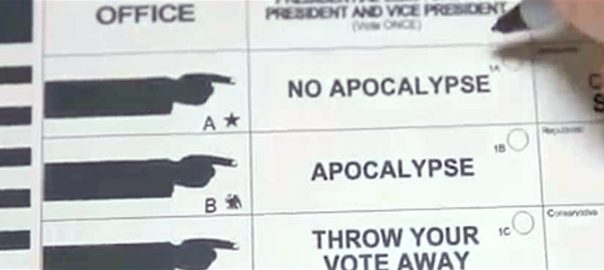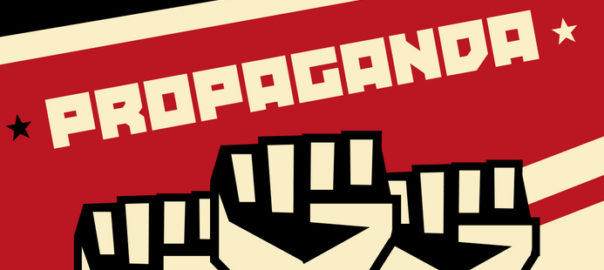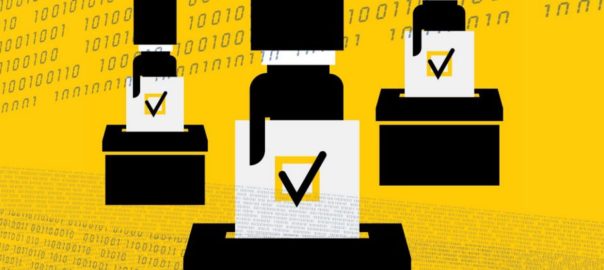
“If Trump wins, cities will burn!” “This is the most important election in history!” “If the Democrats win, it is the end of America.” Such is the rhetoric of our divided society. By all public accounts, everyone is on one extreme or the other, and moderates are a vanishing group.
Every election is important. Thousands of local, regional, and state officials are elected and entrusted with billions of dollars and hundreds of decisions. Nationwide, the entire House of Representatives is up for election every two years. A third of the Senate is elected. The next President will appoint many judges, including those on the Supreme Court. The 2020 election matters.
Our current crises do amplify the consequences of how we vote. This said, we must avoid two mistakes: apathy and apocalyptic fear. The former simply gives up and says, “My vote does not really matter” or “The same power-brokers are still in charge, so what is the use?” The latter term frames this election as an “end times” choice between good or evil. How do we avoid these tendencies and take our civic duty seriously?
Here are some insights I have gleaned from thoughtful women and men over the past several years that I think are helpful as we go to the polls:
- Are we praying for all in authority and blessing those we disagree with most?
- Do the candidates truly support freedom of conscience and religion, peaceful assembly, redress of government, and free speech?
- American Presidents are very powerful, but they are not messiahs or antichrists.
- Are we engaged locally, or obsessed with a few national campaigns? Change for good begins locally, and we can have much influence here.
- People do not fit into neat little ideological or partisan boxes and we must be careful not to judge too quickly. There are pro-life Democrats and pro-choice Republicans. There are Democrats that affirm traditional marriage and Republicans living and supporting alternative lifestyles. Voters often feel they are trapped, and they end up voting for the lesser of two evils.
- Are any leaders looking to balance a budget and be fiscally responsible?
- Are we reading the fine print on ballot propositions?
- How do all candidates propose to change our trajectories for failing cities and rural communities, poor education, and crumbling infrastructure without just printing more money?
- What are the policies on immigration? Do they combine compassion and security or just yell at the opposition?
Let’s say, “NO!” to apathy and apocalyptic speculation and, “YES!” to wise engagement, and personal commitment to fostering peace and justice. Our future rests more on the moral decisions of millions of citizens that the rhetoric of a few politicians. Leaders are powerful, but our voice can be more so, if we have courage.




